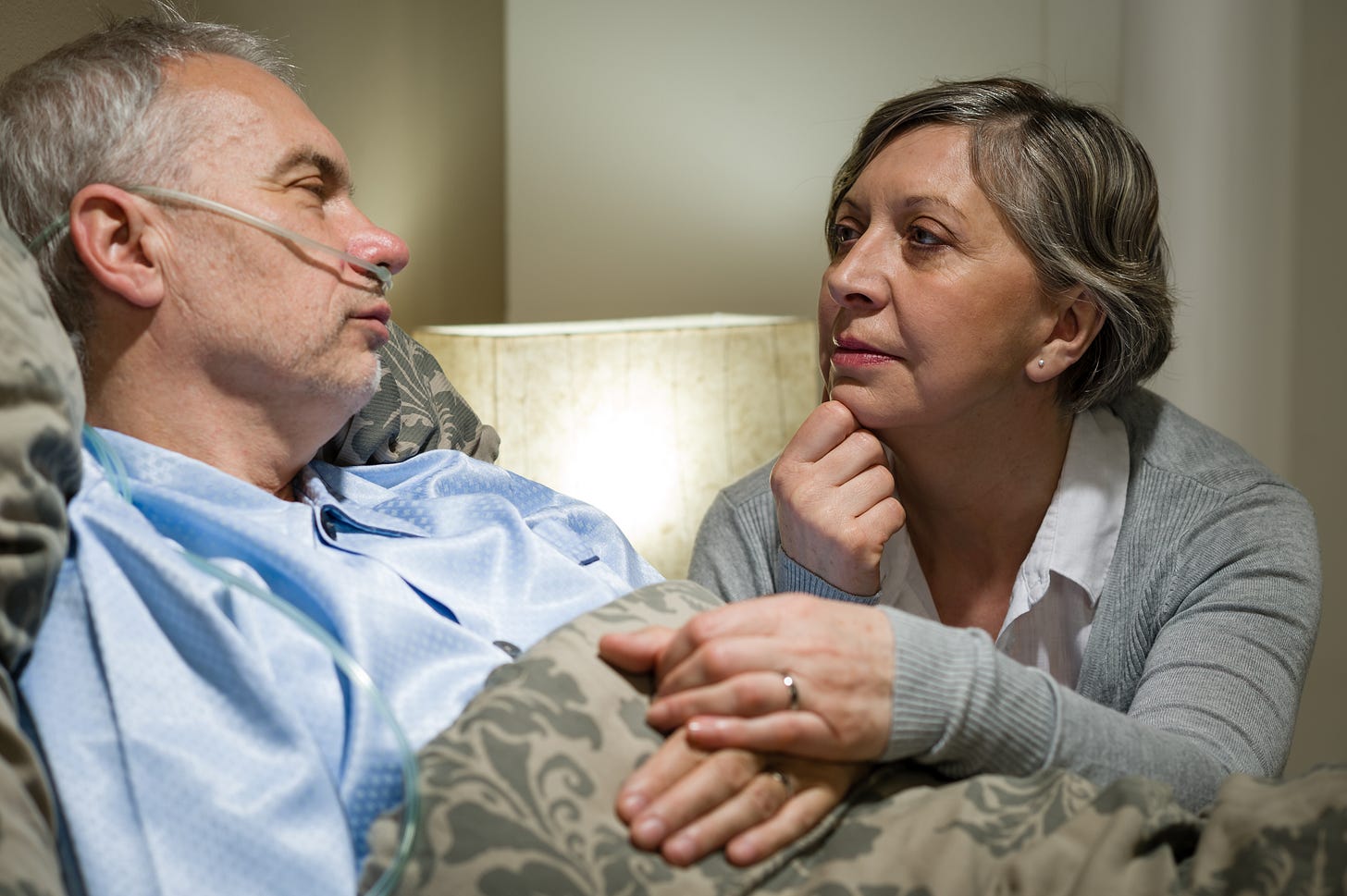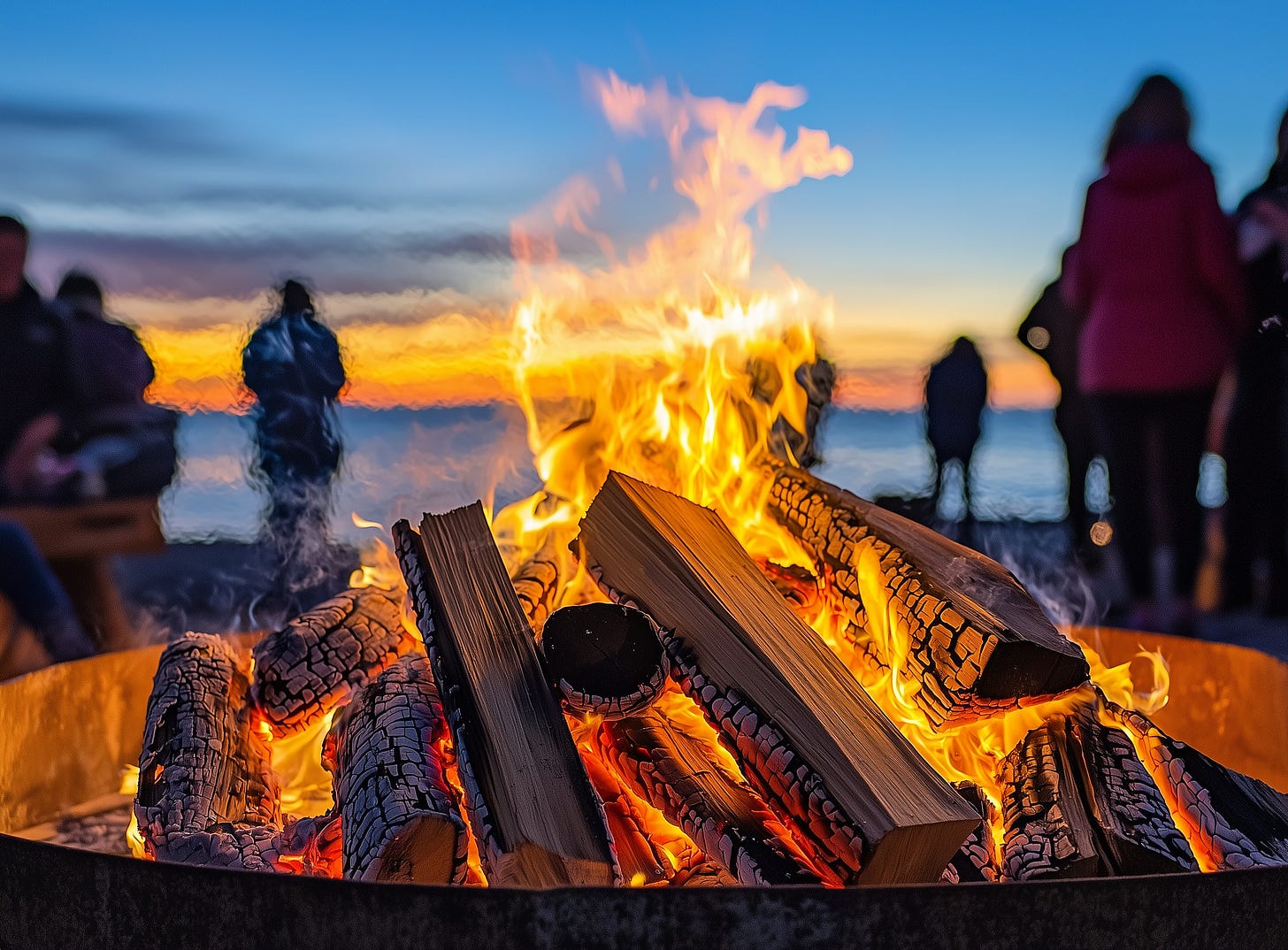A map for the unknown
Trying not to freak my attorneys out as I help them to understand how to make decisions on my behalf if I'm no longer able to.
After dad died, in January this year, there was a bit of a flurry in my family of us all getting our own stuff sorted out – Wills updated, Lasting Power of Attorney (LPA) in place, that sort of thing. I hadn’t long ago updated my Will, after my wife and I bought a house together, but I’d never sorted Lasting Power of Attorney.
Not wanting to assume these terms are well understood, or patronise anyone, I’ll quickly explain what a Will and Lasting Power of Attorney are. Also to say, I am based in England. Rules vary in different parts of the United Kingdom and of course around the world.
A Will lets you decide what will happen to your money, property and possessions after you die. You can do this yourself or ask a solicitor to help, but it must be formally witnessed and signed for it to be legally valid. If you want to update your Will you have to make an official alteration called a codicil, or you can create a new Will. If you die without a Will, the law will decide who gets what.
A Lasting Power of Attorney is a legal document which enables you to appoint one or more people to make decisions on your behalf if you are no longer able to make those decisions yourself or to communicate them. Attorneys can also help you to make those decisions. There are two types of Lasting Power of Attorney. One for Health and Welfare and one for Property and Financial Affairs. You can set these up yourself through the dot Gov website if your arrangements will be straightforward or you can enlist the help of a solicitor.
I have no children so it was a fairly straightforward decision to appoint my wife as my attorney and to have my sister as a replacement should my wife be unable to act – for example if we were both seriously injured in the same car accident. It took about 30 minutes to complete the forms online and then after I had paid the fee (£82 each) I could print off the forms and go through the signing and witnessing process. Once this was complete, I sent the forms to the Office of the Public Guardian and after about 6 weeks they had been formally registered and the official paper copy sent back to me, with a confirmation letter sent to my wife. Done and dusted.
I felt quite smug if I’m honest. Ahead of the game. As far as I know I’m fit and well, so all being well I won’t need to rely on my LPA for a while to come yet.
But then I realised, one of the reasons I’d got on and done it, was that none of us know what is around the corner, do we? I like to imagine I’ll be happily and healthily in my 80s when death comes to visit, and when she does, that it will be gentle, straightforward and somehow within my control. But life isn’t like that is it?
If I’m honest, the reason I got my LPA sorted was because I know, somewhere in a part of my brain that doesn’t get invited forward very often, that I’m only one serious accident away from needing people to step in and act on my behalf to avoid decisions being made about my care that I would not agree with or that might have significant implications for the quality and length of my life.
As these thoughts niggled away at me, I realised that I’m not sure my Attorneys would know enough to confidently make important health choices on my behalf. I’d certainly never discussed my thoughts on ventilation or artificial feeding with them. Also, we will never be able to predict the specific situation that will lead to our attorneys needing to act, or the types of decisions they would be called upon to make, so I thought it was better to share with them a set of guiding principles that my attorneys could use to inform any decisions they might be asked to make on my behalf.
I started by absolving them of any guilt – circumstances may not allow them to put any of my wishes in place, and I did not want them to blame themselves for that. Sometimes the system is just too rigid, or the opportunity to make those choices is missed and suddenly you’re on a whole different path that your non-medically trained attorneys could never have foreseen.
I also realised that to write this guide, I had to imagine what I would want should my attorneys need to use it within the next 12 months. There is no point writing it for the 80-year-old future me. I had to write it as if it would be needed imminently. That means I will also have to review and update it every year or two to make sure it continues to reflect my views.
I then went on to split it into three sections – the first being about medical decision making; the second about the more personal things that I believe will bring me comfort if I am at the end of my life; and the third being about how I would like my body to be treated after death including funeral plans.
It was really interesting to consider how I felt about the different sections. I found writing it quite easy, in an emotional sense. I feel ok thinking about the end of my own life and making plans for it. I know not everyone feels like that. To give you a bit of a flavour of the types of things I included, here are some extracts from the different sections
Medical treatment
When I am close to dying, I would prioritise being as awake and alert as my condition will allow, as opposed to being sleepier and less aware of the situation and people around me. I want to experience it, not be medicated through it. I believe that dying is a natural part of life and would not want to miss this final stage of life.
The quality of the life I am living is more important to me than the length of time I live. Don’t rush to accept treatments that will sustain my life if they don’t bring an obvious improvement in its quality. It is fine to refuse treatments on my behalf, even if that refusal will shorten my life.
Comfort at the end of life
Soft lighting. I hate having the big light on. Lamps only please. I like fairy lights. Twinkling is ok but make sure they aren’t flashing like a rave! I love having candles lit. Scented candles are nice. Raid my savings to get something decent like The White Company.
I love being outside, so try and get me outdoors in nature as much as possible. I’d prefer to be cold than too hot, so don’t worry if it’s raining or cold, just wrap me up and get me outside. I love watching and hearing the birds, looking at the trees and flowers.
If the dog is still with us let him be with me. If possible, let him see and sniff my body after I die so he knows what has happened
After death
If possible, let me be for a bit. Don’t rush to call the undertaker. Open a window. Light a candle. Wash my face and hands. Rub in a bit of essential oil. Does anyone want to come and visit me before I leave?
Once you have my ashes, gather people together on the next new moon when there is good weather for an evening ceremony on the beach. It should involve fire, be interactive, and involve scattering the ashes. Invite people I know. Invite them to bring flasks of hot drinks, chairs, stories, songs and poems.
Let me go knowing that I have lived a wild, full life and then look out for me sending you cheeky little signs through elements of nature occurring in uncanny places
What I found harder than writing it, was actually sharing it with my attorneys. I felt a bit self-conscious if I’m honest. Partly, because it feels a bit weird to say to someone, “can I share my end of life wishes with you?” (even if they are my attorneys) and also because, I’m a bit of a hippy and I felt that some of my wishes might seem a bit weird to other people!
I did the necessary pre-amble to warm them up. To explain why I was doing this now, and that they might want to choose the right time for them to read it. And I put it as an attachment in an email, so the email could be read, and the attachment could be opened later, once they were ready.
Finally, I printed a copy, signing every page and stored it in the folder next to my Will and LPA documents.
So now I genuinely can feel smug. And I’ve stopped thinking about it. Doing some planning or preparation for the end of life doesn’t tempt fate, isn’t morbid and it is never too early. As an End of Life Doula, I know that I’ve got a bit of a head start in terms of emotional readiness for this and some insight into the kinds of advance plans that can be put in place. For anybody else who feels less prepared, a Doula can help to guide you through the range of plans that you might want to make. We can help you to think about what matters most to you. We can help to facilitate tender conversations with the people in your life who you need to know your wishes. We can be alongside you as you contemplate your own mortality and we can support you to reflect on the deaths of other people in your life and the impact they have had on you.
If any of this feels relevant, and you are in the UK, you can find out more and find a local Doula by going to the End of Life Doula UK website. Or you can message me directly.


